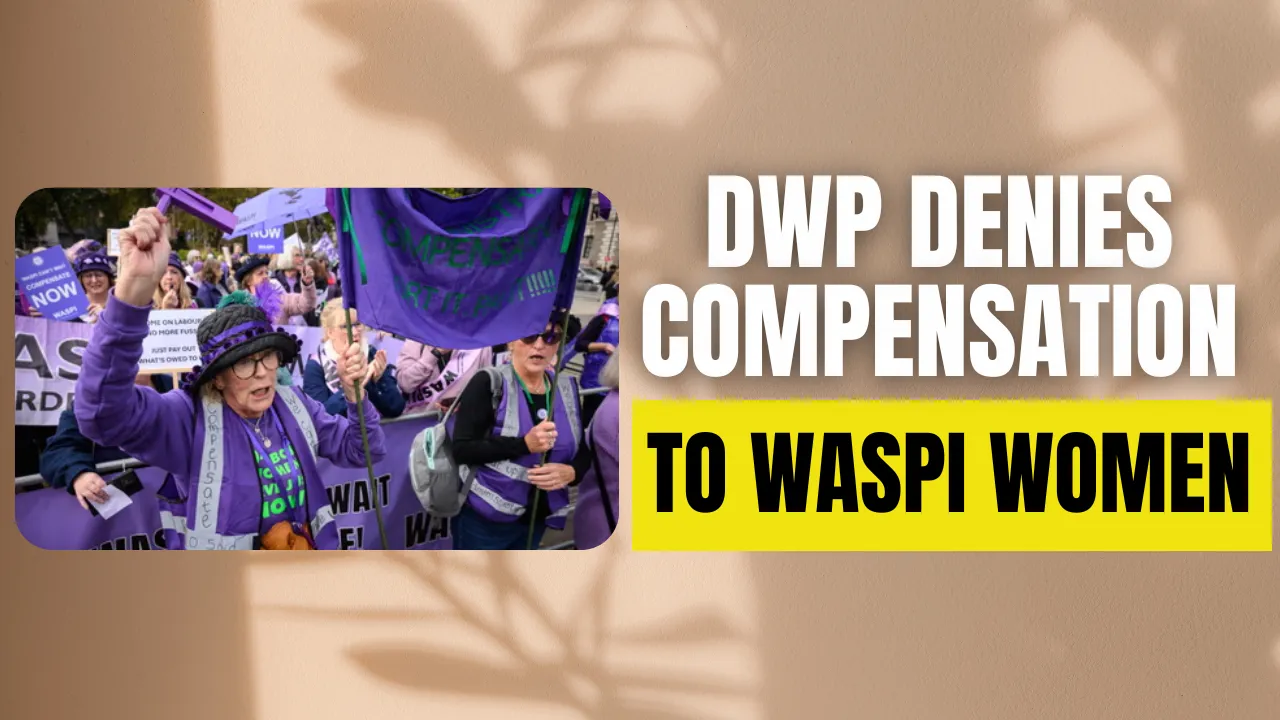PIP Payments: The Personal Independence Payment (PIP) is a vital financial support system for individuals living with long-term health conditions or disabilities. Administered by the Department for Work and Pensions (DWP), PIP helps cover extra costs associated with managing disabilities or chronic illnesses. However, it can be alarming and disruptive when PIP payments are stopped, leaving recipients uncertain about their financial stability.
Understanding the reasons behind payment interruptions and taking timely steps to address them can make a significant difference. In this guide, we will explore common reasons for PIP payment stoppages and provide actionable solutions to help you resolve issues efficiently.
Overview Table: Key Details About PIP Payments
| Aspect | Details |
| Components | Daily Living and Mobility |
| Maximum Payment | Up to £737 every four weeks |
| Eligibility Factors | Health condition severity, living arrangements, finances |
| Common Reasons for Stoppage | Missed deadlines, overpayments, changes in circumstances |
| Action Steps | Contact DWP, request reconsideration, provide updated evidence |
Why PIP Payments Stop: Common Causes
1. Changes in Personal Circumstances
Eligibility for PIP depends on your current health condition, living arrangements, and financial situation. Significant changes in any of these factors can result in payment adjustments or stoppages.
- Health Improvements: If your condition improves and you require less support, your payments may be reduced or stopped.
- Living Situations: Moving into a care home or hospital for over 28 days (unless self-funded) can temporarily pause payments.
What to Do: Notify the DWP as soon as possible if your circumstances change to avoid overpayments or interruptions.
2. Missed Deadlines for Reviews
The DWP conducts periodic reviews of PIP claims to ensure recipients still meet eligibility criteria. Missing review-related deadlines can lead to payment suspensions.
- Scenarios:
- Not submitting required review forms on time may cause temporary payment suspension.
- Missing an assessment appointment could result in claim termination.
Solution: If you miss a deadline, contact the DWP immediately to request an extension or reschedule an assessment.
3. Expiration of Fixed-Term Awards
PIP awards are often granted for a specific duration, typically 1–5 years. Payments automatically stop at the end of this term unless you reapply or renew your claim.
Action Plan: Start the renewal process early by submitting updated forms and evidence of your ongoing needs before the award period ends.
4. Hospitalization or Extended Care Home Stay
If you are hospitalized or living in a care home for more than 28 days, your PIP payments may be paused. This applies to both the daily living and mobility components unless your care is self-funded.
What to Do: Inform the DWP about your hospital or care home stay and update them when your situation changes to resume payments.
5. Overpayment Recovery
If the DWP discovers overpayments due to errors or unreported changes in your circumstances, they may reduce or suspend your payments to recover the overpaid amount.
How to Address It:
- File a Mandatory Reconsideration within 30 days to challenge the decision.
- Provide evidence, such as medical records or financial documents, to support your case.
6. Fraud Investigations
Suspected fraud, such as exaggerating your condition or providing false information, can result in payment suspension while the DWP investigates.
Action Steps:
- Cooperate fully with the investigation and provide requested documentation.
- Seek legal advice if necessary to ensure your rights are protected.
7. Changes in Immigration or Residency Status
Your eligibility for PIP depends on your residency and immigration status in the UK. Changes in these factors can result in payment interruptions.
Solution: Keep your residency documents current and inform the DWP about any changes immediately.
8. Failure to Report Changes
Failing to report significant changes in your health, living arrangements, or financial status can disrupt payments.
Best Practice: Regularly update the DWP about changes in your circumstances and keep records of all communications.
Steps to Resolve PIP Payment Stoppages
If your PIP payments are stopped, here’s what you can do to resolve the issue:
- Contact the DWP PIP Helpline
- Call the DWP as soon as possible to understand why your payments were stopped. They can provide guidance on next steps.
- Request a Mandatory Reconsideration
- If you believe the decision to stop payments was incorrect, submit a written appeal within 30 days.
- Include supporting documents like medical records and evidence of additional expenses.
- Provide Updated Documentation
- Strengthen your case with updated medical reports, proof of expenses, and other relevant evidence.
- Escalate to an Independent Tribunal
- If your Mandatory Reconsideration is unsuccessful, you can take your case to an independent tribunal. This process involves a review by an impartial panel.
- Reapply for PIP
- If your claim has been terminated and your condition persists, you can submit a new application with complete documentation.
Preventing PIP Payment Interruptions
To avoid disruptions in your PIP payments, follow these proactive measures:
- Stay Organized: Keep track of deadlines, review dates, and correspondence with the DWP.
- Notify Changes Promptly: Report changes in your circumstances as soon as they occur.
- Submit Accurate Applications: Double-check all forms and evidence before submission.
- Seek Professional Help: Consult advocacy groups or professionals if you need assistance with applications or appeals.
FAQs About PIP Payments Stopped
1. Why are PIP payments stopped?
Payments may stop due to changes in circumstances, missed deadlines, overpayments, or fraud investigations.
2. What should I do if my PIP payments are stopped?
Contact the DWP immediately to understand the reason, and consider appealing the decision or providing additional evidence.
3. How can I avoid losing PIP payments?
Keep the DWP informed of any changes, meet all deadlines, and start renewal processes early.
4. Can I appeal a decision to stop PIP payments?
Yes, you can request a Mandatory Reconsideration and, if necessary, escalate to an independent tribunal.
5. What happens if I miss a review deadline?
Contact the DWP as soon as possible to request an extension or reschedule the review.
Conclusion
While the stoppage of PIP payments can be unsettling, understanding the reasons behind these interruptions and knowing how to respond can help you regain stability. Whether it’s meeting deadlines, providing accurate information, or challenging decisions, staying proactive is essential.
By keeping yourself informed and organized, you can navigate the complexities of PIP with confidence and ensure you continue receiving the support you need. If you face difficulties, don’t hesitate to seek assistance from professionals or advocacy groups.






